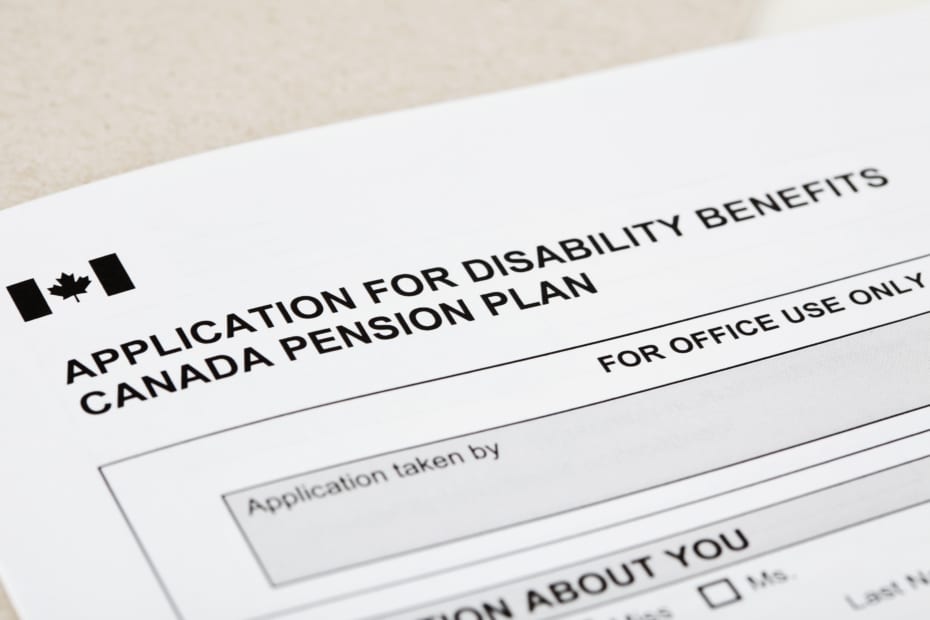Call Us At 519.672.5666
Insights & Articles
CPP Disability Applicants with Psychological Conditions May Qualify for Retroactive Payments

The Federal Court of Appeal recently confirmed that CPP Disability benefits may be paid retroactively to successful applicants with severe psychological conditions such as depression, post-traumatic stress disorder, and trauma, where the person’s symptoms rendered them incapable of forming the intention to apply for benefits. While retroactive payments for periods of incapacity have been available under the legislation for persons who were incapacitated after January 1, 1991[1], the case of Blue v Canada (Attorney General)[2] provides guidance about how psychological conditions can render a person incapable of forming an intention to apply for benefits, even though they remain capable of other life choices.
Ms. Blue claimed her post traumatic stress disorder and other psychological conditions rendered her incapable of forming the intent to apply for a disability pension prior to May 2016. The General Division of the Social Security Tribunal analyzed whether it was more likely than not that Ms. Blue lacked the capacity to form an intention to apply for disability benefits within the meaning of the legislation.[3] The Minister took the position that Ms. Blue’s decision-making activities in other areas, such as being capable of living on her own, managing her financial affairs, raising her daughter, and making decisions about the breakup of her marriage demonstrated that she was able to form the intent to apply for disability benefits. Ms. Blue maintained that while she was capable of some decision-making, the nature and severity of her psychological impairments “rendered her utterly incapable of making the decision to apply for disability benefits”.[4] The General Division found that capacity was not a “global condition or state”, and that a person could be “incompetent in one or more areas of life, while remaining competent in others” and therefore while Ms. Blue was able to function in some areas of her life, she lacked the capacity to form the intent to apply for benefits during the period April 2004 to April 2016.[5] Therefore her application was deemed to have be made as of April 2004, with payments to commence as of that date.
The Tribunal’s Appeal Division overturned that decision, finding the capacity necessary to form the intent to apply for disability benefits was no different in kind than the capacity required to form an intent for other life choices, such as managing finances or raising a child.[6] Therefore no retroactive payments were owing.
On appeal to the Federal Court of Appeal, the Court found that the Appeal Division “simply assumed that because Ms. Blue had the capacity to carry out certain life activities, it necessarily followed that she had the requisite capacity” to form an intention to apply for disability benefits. The Appeal Division did not consider whether her ability to carry out activities such as raising her daughter or paying bills was “indicative of her capacity” to form the intent to apply for disability benefits.[7] The Court reinstated the General Division finding, stating it had considered the test for incapacity appropriately[8], and therefore payments were owing retroactive to the date Ms. Blue was last capable of forming the intent to apply (April 2004).
Commentary:
While the Court’s decision was framed narrowly with regard to the specific factual circumstances of the Applicant’s psychological condition, it does provide reassurance that people with severe psychological conditions and trauma may be eligible for retroactive disability payments for significant periods of time.
Without claiming a period of incapacity, a successful applicant will be deemed disabled to a maximum of 15 months retroactive to the date of receipt of their application. There is a four month waiting period,[9] so therefore a person can only receive benefits for a maximum of 11 months from when their application was received. Even in the case of a late applicant, where the legislation[10] allows an applicant to go back in time to when they last had qualifying contributions, if many years have passed, they would still only be eligible to be deemed disabled to a maximum of 15 months retroactive to the date of their application.
Applicants with severe psychological conditions such as depression, post traumatic stress disorder, and trauma, who have past valid contributions from employment or self-employment earnings, and where there is evidence of an incapacity to form an intent to apply for benefits, may be able to qualify for retroactive payments to the date when they last had capacity. This is significant, because a person only needs to contribute to the Canada Pension Plan in four out of six years of employment in order to be eligible to receive a disability pension to age 65. Also, the income from employment needed to make a valid contribution is low, meaning that even part-time earnings will typically qualify as a valid contribution. Where there is evidence of incapacity, applying for retroactive payment of the disability benefit may enable applicants to recover significant sums.
If you are looking for assistance with a Canada Pension Plan Disability Benefits application or appeal, connect with us for a no cost consultation. We are here for you.
This article was written by a member of the Personal Injury Team at McKenzie Lake. If you require assistance with a personal injury matter or wish to speak to a personal injury lawyer at McKenzie Lake Lawyers LLP, please call (519) 672-5666.
[1] Canada Pension Plan, RSC 1985 c C8 [CPP] at sections 60(8), 60(9), 60(11)
[2] Blue v Canada (Attorney General), 2021 FCA 211 [Blue]
[3] CPP, supra note 1 at section 60(9)
[4] Blue, supra note 2at 24
[5] Ibid at 27-29
[6] Ibid at 30-31
[7] Ibid at 44
[8] Ibid at 43
[9] CPP, supra note 1 at section 69
[10] Ibid at section 44(1)(b)(ii)

